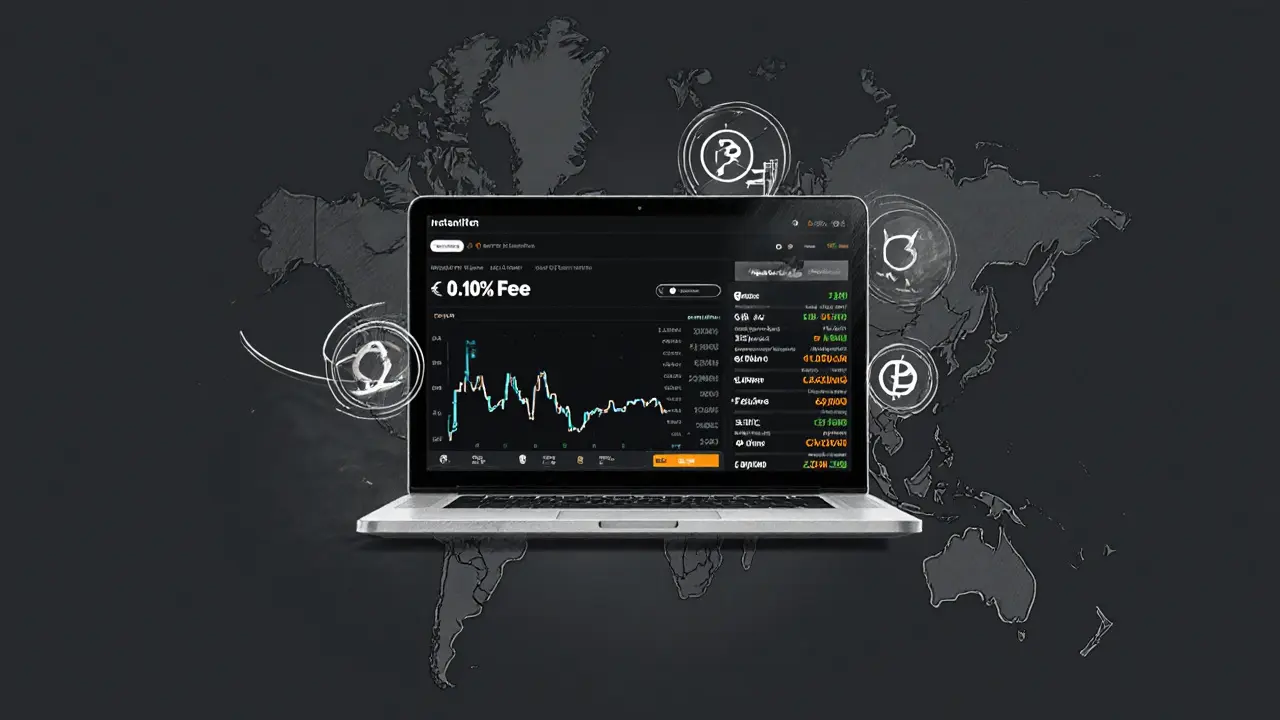A concise review of Instant Bitex, covering its low fees, full feature set, security, why it shut down, and what former users should do next.
Cryptocurrency Exchange: Understanding the Landscape
When you talk about cryptocurrency exchange, a platform where users can swap, buy, or sell digital assets. Also known as crypto exchange, it powers daily trading for millions of participants. A cryptocurrency exchange encompasses both centralized services that hold order books and decentralized exchange, a peer‑to‑peer marketplace that runs on smart contracts without a middle‑man. This split creates a clear semantic triple: the exchange includes centralized hubs and decentralized venues, each with its own risk profile. Adding to the mix, crypto regulation, government rules that define how exchanges can list tokens, handle KYC, and protect users directly influences which assets appear on a platform and how fees are applied. Finally, many exchanges boost traffic with a airdrop, a free token distribution used to attract new users and increase liquidity, making the ecosystem constantly shift.
Key Factors Shaping Exchanges Today
Decentralized exchanges require robust smart contracts; a single vulnerability can lead to a huge smart contract hack, an exploit that drains funds and shakes confidence in a platform. This reality forces developers to prioritize security audits, a point echoed across many of our posts. Meanwhile, crypto regulation shapes the competitive edge of each exchange: tighter AML rules can raise compliance costs, while clear licensing can attract institutional traders. Airdrops, on the other hand, serve as marketing tools and liquidity catalysts, but they also raise questions about tax treatment and token valuation. Together these entities—decentralized exchange, regulation, airdrop, and smart‑contract security—form a network of cause‑and‑effect relationships: regulation influences airdrop strategies, airdrops affect liquidity on both centralized and decentralized venues, and security incidents reshape regulatory scrutiny.
Below you’ll find a curated collection of articles that dive deep into each of these topics. From reviews of specific platforms and fee structures to analyses of recent hard forks, token incentives and the latest airdrop mechanics, the posts give you practical data and actionable takeaways. Whether you’re comparing exchange performance, learning how a new airdrop works, or trying to understand the impact of recent hacks, the following resources will help you navigate the fast‑moving world of cryptocurrency exchanges.
A thorough BitTurk review covering features, fees, security, regulatory status, pros and cons, plus a quick comparison with BtcTurk and FAQs for traders.
A comprehensive 2025 review of Yibi Exchange covering fees, security, features, user experience, and how it compares to Binance and Coinbase.



